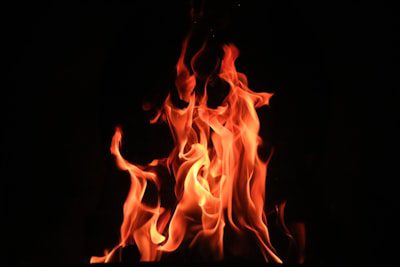
How Will Home Insurance Cover A Kitchen Fire
In every kitchen, there is a fire risk present. After all, cooking means using heat and electricity, and in either case, a spark could easily lead to a flame. That’s part of why kitchen fires are among the leading (and most expensive) causes of homeowners insurance claims in the nation.
Plus, no matter how hard you work to be a safe and sanitary chef, you simply cannot eliminate the risk of a fire occurring. Still, there are numerous steps you can take to ensure you observe proper fire safety, and you should always be able to rely upon your homeowners insurance if the worst ever does happen. Let’s take a closer look at how coverage works. 
Home Insurers Consider Cause When Determining Coverage for Fires
If a fire occurs in your kitchen, then your insurance company will want to know the cause of the fire. Sometimes, it might be related to an electrical malfunction. Or perhaps it started because of a kitchen towel that accidentally fell onto the hot eye of the stove. In either case, the fire was purely accidental, and your policy will help cover the resulting damage.
In other cases, however, your plan will not provide any assistance. For example, most policies do not cover fire damage when that fire resulted from cases of clear neglect or lack of maintenance on the part of the homeowner. In other words, if you don’t clean your kitchen regularly and grime accumulates to the point that it triggers a fire easily, then your plan might not cover the damage.
How a Claim Happens
If a fire starts in the kitchen, then the first thing to do is to put it out. The longer a fire burns, the worse the damage will be, after all. Never put yourself in danger, however. Call the fire department immediately.
Only after the fire is extinguished, call your home insurer. At this time, your agent will appraise the damage and help you begin the process of filing a claim and making the repairs. Usually, the insurance company hires someone to clean up the water damage and debris. They will also work with you to hire a contractor who can estimate the cost of repairs.
Usually, your plan will pay for both the cost of construction and the cost of replacing possessions damaged by the fire. Additionally, if you cannot live in your home while the repairs are ongoing, then your plan can also cover the costs of additional living expenses that you might encounter because you must live away.
A kitchen fire can be a high-risk loss scenario, but your home insurance is there to cover incidents like this. Work with your agent to get the work done properly.
Tags: home insurance






